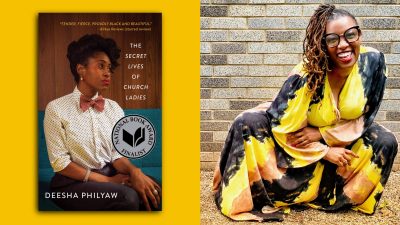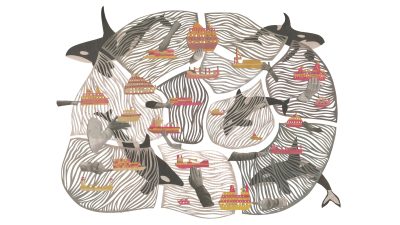Columns
How’s the Writing Going, Cheryl Strayed?
“I love writing. I really do. Even though I often hate it at various points in the process. Learning to accept that has been so important to me.”
How’s the Writing Going, Mike Albo?
“It’s taken me fifty-three years to be able to understand how to say what I want, or say who I am, or say what I believe.”
How’s the Writing Going, Deesha Philyaw?
“For me, getting better as a writer is learning how to get to the essence of things and boil down all of that exposition and backstory.”
The Intimate Relationship of Telling Someone Else’s Story
Nonfiction writers can get so consumed by investigating that we lose track of the story. Narrating my audiobook brought me back to the real person at the heart of it.
I Read My Own Audiobook Like It Was Someone Else’s
I expected that inhabiting the roles of both the author and the narrator at once would bring me closer to the text than ever, in a way that might feel uncomfortable.
The Poetry of Comics: A Conversation with Collage Artist Mita Mahato
“Comics made the confusion and desperation feel contained. By ‘contained’ I don’t mean controlled—more the feeling of ‘I can deal with this piece of my grief, explore it, turn it around, and add context to it.’”
How’s the Writing Going, Jen Doll?
“I think I’m trying to reconcile the need to write and have a deadline with the need to be a human? And right now, the human is winning.”
Trans Voices Belong in the Recording Booth Too
Contributing to the small body of trans-narrated, trans-written audiobooks felt both personally affirming and politically necessary.
Book Contracts: Let’s Talk Surprises
In the final installment of her column, Kate McKean tells us about the things authors don’t expect to be in a book contract.
“I thought my way through the puzzle of the poem”: A Conversation with Niki Herd
Jessica Wilbanks discusses the craft choices Niki Herd made while writing her poem “Bird.”










